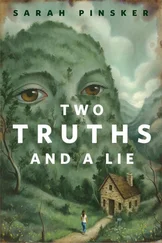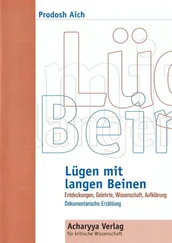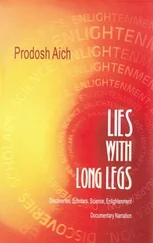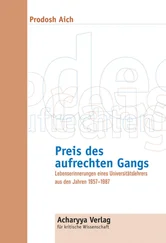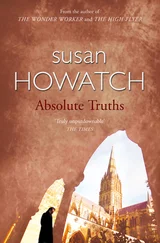But she sends her children regularly visiting both the families. She does not accompany them. The children cling to the mother. And the mother clings to the children. In spite of her social isolation and of her extreme poverty Adelheidhas been able to educate the kids sending both Augusteand Friedrich Maximilianto schools. There are however indications that a few friends of late Wilhelm Müllercame forward to assist her in financial or other crisis now and then, and not her parents, not her brothers, not her well-to-do stepmother-in-law.
*****
The childhood of Friedrich Maximilianis hard, sad and uneventful. He suffers from chronic headaches from the very childhood till he will be 37 yearsold. We are unable to judge finally whether Friedrich Maximilianpicks up this precarious state of his health before or after the early death of his father. It is doubtless that the life of Friedrich Maximilianchanges radically caused by the sudden death of his father.
Max Müllerwill write two years before his death in his “My Autobiography. A Fragment” , published after his death in 1900 with a preface of his son W. G. Max Müllerin the same publishing house as mentioned above, on the childhood of Friedrich Maximilian. There we read (p. 53):
“My childhood at home was often very sad. My mother, who was left a widow at twenty-eight with two children, my sister and myself, was heart-broken. The few years of her married life had been most bright and brilliant. My father was a rising poet, ... Contemporaries and friends of father, particularly Baron Simolin, a very intimate friend, who spent the Christmas of 1825 in our house, ... Anyhow, my father, whose salary was minute, seems to have been able to enjoy the few years of his married life in great comfort. The thought of saving money, however, seems never to have entered his poetical mind, and after the sudden death, due to paralysis of the heart, it was found that hardly any provision had been made for his family. Even the life insurance, which is obligatory on every civil servant, and the pension granted by the duke, gave my mother but a very small income, fabulously small, when one considers that she had to bring up two children on it. It has been a riddle to me ever since how she was able to do it.”
Friedrich Maximilianis marked by poverty from his early childhood. He is also socially isolated between two more or less affluent families. His mother is disinherited from her parental family for all practical purposes. We do not find any indication whether Adelheid Müllerever inherited her legitimate portion of her parental holdings and wealth. All these must have been depressing also for Friedrich Maximilian. None the less, “ Max Müller” will write later in his autobiography (p. 53 ff):
“On my mother’s side my relatives were more civilized, and they had but little social intercourse with my grandmother and her relatives. My mother’s father was von Basedow, the president, that is Prime Minister of the duchy of Anhalt-Dessau, a position in which he was succeeded by his oldest son, my uncle. He was the first man in the town; the Duke and he really ruled the Duchy exactly as they pleased. ... My grandfather’s father again was the famous reformer of public education in Germany. He (1723–1790) ... migrated to Dessau, to become the founder of the ‘Philanthropinum’, and at the same time the path-breaker for men such as Pestalozzi (1746-1827) and Froebel (1782-1852). ...I was often told that I took after my mother’s family, whatever that may mean, and this was certainly the case in outward appearance, though I hope not in temper. My great-grandfather, the Pedagogue as he was called, was a friend of Goethe’s, and is mentioned in his poems.”
*****
The life of Friedrich Maximilianwould have taken a different course if Adelheidcould have left Dessau after the sudden death of her husband, Wilhelm Müller. But there is no way out. He has to live with his mother and sister in a tiny ground floor flat in a tiny house at Dessau, which is then a small town having a population of about 3,000. Adelheidis now 27 years old. She never thought of marriage again. She decides to live for her children only. She does her best looking after that both the kids do well at schools. She knows that education was the only way out, at least for Friedrich Maximilian, to do well, to prosper in life.
It is not easy for Friedrich Maximilianin the school. Dessau is a small town. His schoolmates and the teachers know all about his deprivations. He is half orphan, isolated from both of the family lines, poor, a “mummy’s darling” and partly disable being regularly attacked by severe headaches. There are very little positive aspects in his life to talk about with his schoolmates. There are only limited options left for him not to fall into depression: excel in learning, excel in sports, and learn talking on imaginative remote themes, conceived or exaggerated.
We have not found any indication that Friedrich Maximilianever participated in any sport activities. Due to his chronic headaches, he cannot excel in learning either. He practices talking entertainingly. To begin with glorifying the fame of his father that is always a theme at home also and conceiving fantastic stories.
Max Müllerwill describe this period of Friedrich Maximilian’s life at Dessau and his situation there in “My Autobiography” (p. 90), written, as mentioned, at the age of around 75, far better than we ever could have done going through historical records in the archives:
“The more I think about that distant, now very distant past, the more I feel how, without being aware of it, my whole character was formed by it. The unspoiled primitiveness of life at Dessau as it was when I was at school there till the age of twelve would be extremely difficult to describe it in all its details. Everybody seemed to know everybody, and everything about everybody. Everybody knew that he was watched, and gossip, in the best sense of the word, ruled supreme in the little town. Gossip was in fact, public opinion with all its good and bad features. Still the result was that no one could afford to lose caste, and that everybody behaved as well as he could.”
As already indicated, several adverse factors could have lead Friedrich Maximilianto a traumatic life which he has to tackle from the very early childhood: we recall, the sudden death of his father, negligence by families of both sides, depressions of Adelheid, their social isolation, Adelheid’s ambitions, poverty and his severe migraines. Friedrich Maximilianhas to cope with the adverse situation and to develop strategies. He makes the best of it. His basic personality is being set accordingly. He does it in his own way. We shall come along to “his way” in due courses. Presently we read in “My Autobiography” by Max Mülleron the early childhood of Friedrich Maximilian(p. 52 - 57):
“My sister and I were always terrified when we were sent to visit her, for with her dishevelled grey hair, her thin white face, and her piercing eyes, she was to us the old grandmother or the witch of Grimm’s stories; and the language she used was such that, if we repeated at home, we were severely reprimanded. She knew very little about my father, but her memory about her first husband and about her own youth and childhood was very clear, though not always edifying. Her stories about ghosts, witches, ogres, knickers, and the whole of that race were certainly enough to frighten a child and some of them clung to me for a very long time, ... On my mother’s side my relations, who were all high in the public service, my grandfather, as I said, being the Duke’s chief minister, made life more easy and pleasant b for us; but for many years my mother never went into society, and our society consisted of members of our own family only. All I remember of my mother at that time was that she took her two children day after day to the beautiful Gottesacker (God’s Acre) , where she stood for hours at our father’s grave, and sobbed and cried. ... At home the atmosphere was certainly depressing to a boy. I heard and thought more about death than about life, though I knew little of course of what life or death meant. I had but few pleasures, and my chief happiness was to be with my mother, I shared her grief without understanding much about it. She was passionately devoted to her children and I was passionately fond of her. What there was left of life to her, she gave it to us, she lived for us only, and tried very hard not to deprive our childhood of all brightness. She was certainly most beautiful, and quite different from all other ladies at Dessau, not only in the eyes of her son, but it seemed to me, of everybody. ... As far as I can recollect, I was never so happy as when I could be with her. She read so much to us that I was quite satisfied, and saw perhaps less of my young friends than I ought. When my mother said she wished to die, and to be with our father, I feel sure that my sister and I were only anxious that she should take us with her, for there were few golden chains that bound us as yet to this life.”
Читать дальше



